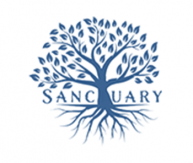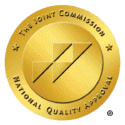
Is Tizanidine Addictive?
Tizanidine can be a safe and effective medication when it is used as directed. But before you start to take it, you should ask your doctor about any potential drawbacks, such as: What side effects does it cause? Is tizanidine addictive? Will you go through withdrawal if you stop using it?
What is Tizanidine?
Tizanidine is a prescription medication that can alleviate muscle spasms, muscle tightness, and severe muscle cramping. In addition to being sold as a generic, it is also marketed under the brand names Zanaflex and Ontralfy.
The U.S. Food and Drug Administration (FDA) approved tizanidine in 1996 to treat patients who have been experiencing muscle spasticity as a result of:
- Spinal cord injuries
- Multiple sclerosis
- Amyotrophic lateral sclerosis (ALS)
- Traumatic brain injury (TBI)
- Stroke
Doctors in the U.S. also prescribe tizanidine on an off-label basis to treat a variety of other concerns, including:
- Chronic migraines
- Some types of chronic pain
- Regional musculoskeletal pain syndromes
- Treatment-resistant insomnia in patients with quadriplegia
Tizanidine is typically taken orally in capsule, tablet, or liquid form.
What Does Tizanidine Do?
Tizanidine is classified as an alpha-2 adrenergic agonist. This means that it interacts with receptors in the central nervous system (CNS) that release certain excitatory neurotransmitters.
These types of neurotransmitters increase the speed with which messages are delivered throughout the CNS. By preventing their release, tizanidine inhibits the functioning of neurons that trigger muscle movements.
This neuronal inhibition can cause an easing of spasms, tightness, and cramping.
Can Tizanidine Get You High?
In addition to its antispastic effects, tizanidine can also cause relaxation and sedation.
For someone who has been experiencing intense pain due to muscle spasms, these effects may lead to an easing of anxiety and an overall improvement in mood. But tizanidine does not typically cause the degree of euphoric disorientation that is commonly associated with the recreational use of opioids, benzodiazepines, and certain other prescription medications.
Even when a person takes tizanidine as directed by their physician, they can experience a range of adverse effects, such as:
- Anxiety
- Panic
- Depression
- Hallucinations
- Delusions
- Mood swings
This doesn’t mean that no one abuses tizanidine in an attempt to get high. However, given the unpredictability of the drug’s mental health effects, as well as the likelihood of unpleasant results when people misuse it, tizanidine is not a particularly popular recreational drug.
Is Tizanidine Addictive?
Though tizanidine is available only by prescription in the U.S., it is not classified as a controlled substance by the Drug Enforcement Administration (DEA).
This signifies that, in the opinion of the U.S. government, tizanidine use is unlikely to lead to abuse and addiction. But even a minuscule risk is not the same as no risk at all.
So, is tizanidine addictive? It can be.
Compared to the risk posed by opioids and benzodiazepines, tizanidine addiction is rare. Yet it is possible, and people do become dependent on this medication.
Tizanidine Addiction Symptoms
The signs that someone has become trapped by tizanidine’s addictive properties can include:
- Having strong cravings for the drug
- Taking tizanidine in a greater amount or for a longer period than directed
- Exaggerating or lying about physical symptoms in order to get additional prescriptions
- Acquiring tizanidine illicitly, such as by borrowing or stealing it from someone else or purchasing it from unlicensed online pharmacies
- Using tizanidine is circumstances that are particularly dangerous, such as by combining it with alcohol and other mind-altering substances
- Continuing to use tizanidine even after experiencing some type of physical, psychological, or social harm as a result of prior use
- Developing withdrawal symptoms when they abruptly reduce or end their tizanidine use
- Wanting to stop using tizanidine, but being unable to quit
Side Effects of Tizanidine Dependence
In addition to causing the psychological side effects listed earlier in this post, tizanidine use has also been linked with several adverse physical effects, including:
- Abnormal heart rate
- Chest pain
- Respiratory problems
- Liver damage
- Blurred vision
- Discomfort during urination
- Fever or chills
- Nausea and vomiting
- Exhaustion
- Muscle weakness
- Unintentional weight gain
When a person becomes dependent on tizanidine, the disruptive impact of their continued compulsive use of the drug can include:
- Declining performance in school or at work
- Conflicts with friends, family members, and colleagues
- Financial problems
- Legal problems
- Onset or worsening of mental health concerns
It is also possible to overdose on tizanidine, which can cause symptoms such as:
- Disorientation
- Chest pain
- Slow, shallow, or strained breathing
- Slowed other otherwise irregular heart rate
- Loss of consciousness
- Bluish coloration near lips and fingertips
Anyone who exhibits these types of symptoms after taking tizanidine needs immediate medical attention. If you are with someone who overdoses, call 911 immediately and remain with them until help arrives.
What Happens If I Suddenly Stop Taking Tizanidine?
When you take tizanidine for an extended period, either illicitly or by prescription, your body will begin to adapt to the presence of this drug. Abruptly ending your use of the drug can trigger a variety of withdrawal symptoms as your body attempts to reestablish equilibrium.
Typical signs of tizanidine withdrawal include:
- Hypertension (elevated blood pressure)
- Tachycardia (heart rate above 100 beats per minute)
- Hypertonicity (excessive muscle contractions)
- Anxiety
It is never advisable to alter or end your use of tizanidine or other prescription medications without first consulting with your doctor. If they agree with your decision to stop using tizanidine, they can set up a schedule to gradually reduce your use over time.
Tapering in this manner gives your body time to readjust, which minimizes the likelihood of withdrawal symptoms and other problematic effects.
Treatment for Tizanidine Abuse
To be most effective, treatment for tizanidine abuse and addiction should be customized to reflect the full scope of each patient’s unique needs and goals. This includes addressing any medical and mental health concerns as well as their compulsive tizanidine use.
Depending on a range of personal factors, an optimal course of care may include elements such as:
- Prescription medication
- Individual, group, and family therapy
- Cognitive behavioral therapy (CBT)
- Dialectical behavior therapy (DBT)
- Acceptance and commitment therapy (ACT)
- EMDR and other trauma-focused therapies
- Experiential and holistic therapies
- Psychoeducational sessions
Untreated addictions can have a devastating impact on virtually every part of a person’s life. But when someone gets the right type of treatment from a reputable provider, they can end their drug use and begin to build a much healthier life in recovery.
Contact Sanctuary Treatment Center for Help
Sanctuary Treatment Center offers comprehensive, personalized treatment for adults who have become addicted to tizanidine and other drugs.
In addition, programming options at our addiction treatment center in Los Angeles, California, include detoxification (detox), inpatient rehab, outpatient care, and aftercare planning services. Moreover, our team of experienced professionals will work closely with you to identify the therapies and interventions that best align with your specific needs, goals, and expectations.
To learn more or to schedule a free assessment, please visit our Contact page or call us today.
Published: 6/13/2025


